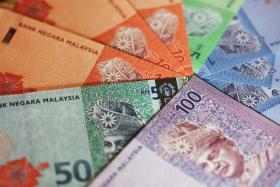Property stocks lead charge on SGX
More than 70% of the 37 top-performing billionaire stocks are in real estate industry or Reits
According to Forbes' latest Singapore's 50 richest list, there are 30 billionaires based here.
On the Singapore Exchange (SGX), there are even more billionaires - 98 stocks with a capitalisation above $1 billion listed on the mainboard.
And just like how the fortunes of Singapore's wealthiest have risen - the total net worth of Singapore's 50 richest, at $104.6 billion, is up 11 per cent from a year ago - quite a number of these large-cap stocks have also grown, showed a report by SGX last week.
Investors in billionaire stocks may have also become richer.
Out of the 98 billionaire stocks, 37 have a dividend yield above 4 per cent, higher than the benchmark Straits Times Index's (STI) 3.2 per cent average.
The average yield of these 37 stocks is 6.1 per cent, according to SGX data.
These stocks also averaged a 19.1 per cent year-to-date return, which is higher than the STI's 13.3 per cent year-to-date gain.
The upbeat property sentiment this year may be behind the gainers.
More than 70 per cent of the 37 well-performing billionaire stocks are in the real estate industry or real estate investment trusts (Reits), said SGX.
In the year-to-date, four out of five of the best-performing billionaire stocks are also property-related.
These are CDL Hospitality Trusts (31.6 per cent), Frasers Centrepoint (29.7 per cent), Lippo Malls Indonesia Retail Trust and Mapletree Logistics Trust (both of which have a yield of 25.3 per cent).
Strong economic growth in the region have also boosted some of these stocks.
For instance, Lippo Malls Indonesia Retail Trust, the only Indonesian Reit on the SGX, attributed its results to its country's strong gross domestic product growth, and surging retail sales in June in a recent financial statement.
Many property-related stocks provided the highest yields this year.
For instance, Lippo Malls Indonesia Retail Trust had a dividend indicative yield of 8.1 per cent, Frasers Commercial Trust investors got 7.1 per cent, while OUE Commercial Reit and OUE Hospitality Trust offered a yield of 6.8 per cent.
It is perhaps no surprise that about two-thirds of Singapore-based billionaires have property-related businesses or stakes.
BROTHERS
In fact, the richest men in Singapore - with a fortune of $9.4 billion - are brothers Robert and Philip Ng who control Far East Organisation, Singapore's largest private landlord and property developer.
Non-property related billionaire stocks are also in booming industries.
The top performer, Hi-P International, which gained 183.8 per cent in the year-to-date, is in the technology manufacturing industry.
Two non-property high-yield stocks are Keppel Infrastructure Trust (6.8 per cent), which owns public utilities such as desalination plants in Singapore, and Hutchison Port Holdings Trust (7.7 per cent), which owns deep-water container ports in China, Hong Kong and Macau.
In its latest financial statement, Hutchison credited the improving economies of Europe and the United States for increased cargoes to its ports.
Most billionaire stocks on the SGX are also blue-chip stocks, a favourite among local investors due to their stable returns.
Nine of the 37 high-yield stocks are also constituents of the benchmark STI, noted SGX.
Investors with a stronger appetite for risk should also note that the biggest stocks on the Catalist board have also performed well this year.
In the year-todate, four out of five of the best-performing billionaire stocks are propertyrelated. These are CDL Hospitality Trusts, Frasers Centrepoint, Lippo Malls
Indonesia Retail Trust and Mapletree Logistics Trust.
The billionaire stocks on the mainboard are larger and more established companies, while the Catalist board is for potentially fast-growing companies.
The 10 largest capitalised stocks on the Catalist board have averaged a 71.2 per cent price return in the year-to-date, after registering an average 6.8 per cent decline last year, said an SGX report last week.
Excluding the gains of top performer, paint company Samurai 2K Aerosol that listed in January, the nine remaining stocks still averaged an impressive 42.9 per cent gain in the year-to-date.
While many of the billionaire stocks are in the property industry, the top 10 Catalist companies are in the manufacturing business spanning four sectors: healthcare, materials, industrials and information technology.
The recent stellar manufacturing statistics may explain the huge gains of the Catalist firms.
The Purchasing Manufacturing Index (PMI), a key barometer of the Singapore manufacturing economy, has recorded 11 consecutive months of expansion.
But investors should also be aware of the unpredictability of Catalist stocks.
HISTORICAL VOLATILITY
SGX data showed that the average 260-day historical volatility of the 10 stocks was 91.2 per cent, much higher than the 30 stocks of the STI, which saw a historical volatility of 19.4 per cent over the same period.
Said the SGX report: "As noted in Catalist offer documents, companies listed on Catalist may carry higher investment risks when compared with larger or more established companies listed on the mainboard.
"Furthermore, companies may list on Catalist without a track record of profitability and there is no assurance that there will be a liquid market in the shares or units of shares traded on Catalist."
Get The New Paper on your phone with the free TNP app. Download from the Apple App Store or Google Play Store now



